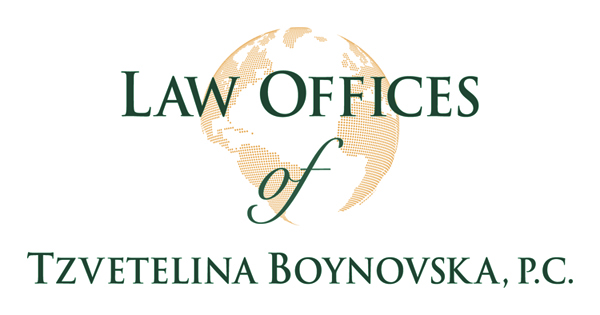
Lets start a journey
The practice of Law Offices of Tzvetelina Boynovska, P.C. is focused on US Immigration Law. We are committed to providing insightful counseling and exceptional service to make your American dream come true.
Contact us – 312.222.9353
SERVICES
What We Do
With more than 27 years of experience as an attorney in the United States, Tzvetelina Boynovska and her staff have represented many corporate clients and their employees, as well as thousands of individuals ranging from students and truck drivers to reuniting families to outstanding researchers and performers with worldwide acclaim. Law Offices of Tzvetelina Boynovska P.C. will assist you with your case no matter how small or complex it is.
Assist
We service clients globally in all immigration matters, ranging from employment and entertainment visas to family immigration, naturalization, consular processing, asylum and defense in deportation proceedings. The firm has successfully assisted hundreds of businesses and individuals simplify the complex immigration process.
Represent
Because we are a small firm, we can spend the appropriate amount of time on each of our clients’ matters. We have staff that speaks fluent Bulgarian, Russian, and Spanish for those clients who speak English as a second language. We can represent you regarding your immigration case no matter where you live.
Help
What sets our firm apart is that all our staff members have personal experience with immigration, combined with a deep knowledge of immigration law and its enforcement. We understand and care about the problems of our clients, and are devoted to helping you without any delays and unnecessary costs.

WHAT WE OFFER
Why hire an attorney?
The immigration process may be one of the most important events in your life. Although the government websites as well as many others give plenty of information, one should not rely on the web for legal advice. Many times the advice given is inaccurate or the forms downloaded are outdated. Depending on your case, there could be several different government agencies involved in the process that typically offer only generic information and standard letters. During a stressful and confusing time, your lack of experience and advice from friends or unlicensed “specialists” could lead to mistakes that could have disastrous effects and may not be fixable. Each case has individual circumstances that require professional evaluation.
How to find us
Office
Our office is on the 3rd floor of one of the most evocative landmarks in town, the Dearborn Station (at Polk and Dearborn Street). Built in 1885, this Romanesque-Revival building was once the place where many immigrants first set foot on Chicago soil. The office is conveniently located near all major highways in Chicago, Illinois, and is easily accessible by public transportation.
Public Transportation
CTA
CTA Blue Line
Exit at LaSalle station
As you exit the train station continue walking East for two blocks until you reach Dearborn Street. Turn right (South) at Dearborn and walk to Polk Street.
CTA Red Line
Exit at Harrison station
Take State Street South until you reach Polk St. Turn right on Polk St. The building will be on your left side only a block away from State St.
CTA Brown Line
Exit at Harold Washington Library Station
Take Dearborn Street South until you reach Polk Street.
CTA Orange Line
Exit at Harold Washington Library Station
Take Dearborn Street South until you reach Polk Street.
CTA Pink Line
Exit at Harold Washington Library Station
Take Dearborn Street South until you reach Polk Street.
